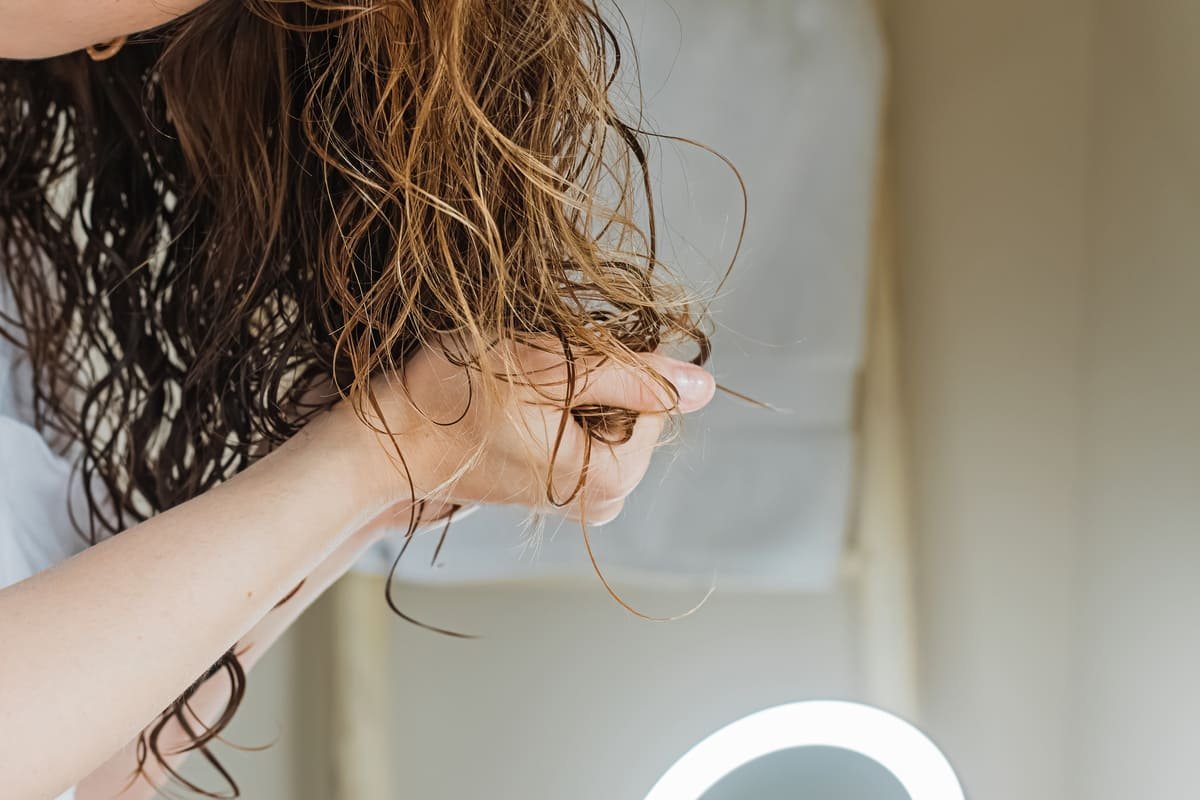
Is your hair feeling rough, dull, or hard to manage? A hair mask might just be what your routine is missing. While all hair masks nourish your hair wonderfully, choosing the right one makes all the difference. Before you hop onto the masking routine, it’s crucial to ask all the right questions.
So, if you've ever asked how often to use a hair mask, can I use a hair mask every day, can I apply it to oily hair, or should I use conditioner after a hair mask, this guide is for you. So dive right in.
Q1. How often should you use a hair mask?
Understanding how often you can use a hair mask depends on your hair type and the type of hair concerns you are facing. For dry, damaged, or color-treated hair, you can use a hair mask 1 or 2 times a week. If you have fine, thin, or oily hair, you can use a hair mask once every 2 weeks. If you’ve been wondering, can I use a hair mask every day? The answer may be no. Too much of heavy masks can lead to product buildup and weigh your hair down. For a proper, personalized routine, visit your nearest L'Oréal Professionnel salon and ask your stylist for their expert opinion.
Q2. Can I use a hair mask on oily hair?
Yes, as long as you select the right hair mask. Go for a lightweight mask that won’t leave your hair greasy. Use clay-based or balancing masks and focus the application on the mid-lengths to ends, avoiding the scalp. Include a mask in your scalp care routine to balance out oily roots and get nourished ends. If you have an itchy scalp, try an anti-discomfort intense soother treatment instead of a scalp mask.
Q3. When to apply a hair mask—before or after shampooing?
You should use a mask after shampooing. Using a cleansing shampoo opens up your hair cuticle and removes dirt, oil, and buildup. That gives the mask a clean slate to penetrate and deliver its active ingredients. Applying it before shampooing means you're sealing in the impurities, not the nourishing treatments. Follow your hair mask with a conditioner or a serum to lock in the moisture between two masking treatments.
Q4. Which is better—hair mask or conditioner?
Hair masks and conditioners are both vital for your hair care regimen, as they both play different roles. Conditioners smooth the cuticles, add shine, and make hair easier to detangle after washing. Hair masks go deeper within your hair lengths and are treatment-based, designed to nourish and repair hair from the inside out. If you color, bleach, heat-style, or chemically treat your hair often, a mask is non-negotiable. Think of conditioner as your regular post-shampoo moisturiser, and the mask as a once-a-week treatment.
Q5. How do I apply a hair mask?
Applying a hair mask is very simple. Just start with a shampoo to cleanse your hair and rinse it off. Towel dry your hair and begin applying the hair mask on your mid-lengths and ends. Avoid using masks on the scalp unless it’s a scalp-specific mask. Gently finger-comb your hair to detangle and leave it on for a few minutes, as directed on the product packaging. Rinse off the mask thoroughly with cool or lukewarm water. You can also wrap your hair with a warm towel after applying the mask to ensure proper absorption.
Q6. Should I use conditioner after hair mask?
Yes, at times you can use conditioner after the mask to seal the cuticle and lock in the treatment. However, if your mask is already doing both, you can skip the conditioner and jump to serums or leave-in creams.
Q7. Can I leave a hair mask on overnight?
Use the hair mask overnight only if the product packaging suggests so. Overnight masks are usually formulated with slow-releasing ingredients that work while you sleep without overwhelming your hair. If you leave a regular rinse-out mask overnight, you could end up with buildup, clogged scalp pores, or matted hair.
Q8. What are the pros and cons of hair masks?
Hair masks have several pros, like deep hydration and softening, repairing damaged or chemically treated hair, smoothing, shining, and strengthening your hair. Hair masks also help you treat hair concerns like breakage and frizz. Hair masks present with cons if you have selected the wrong product for your hair type. This is why choosing the right product range is crucial.
Q9. How do I choose the right hair mask?
Selecting the right hair mask depends on what your hair needs. Here’s a simple guide you can refer to -
|
Hair Concern |
Ingredients |
Product Recommendation |
|
Frizz |
Pro-Keratin |
|
|
Dryness & Surface Damage |
Protein + Omega-9 |
|
|
Breakage-prone hair |
Glicoamine |
|
|
Color Protection |
Resveratrol and Panthenol |
|
|
Long Hair with Thin Ends |
FILLER-A100 + Amino Acid |
|
|
Unruly Processed Hair |
Pro keratin, Incell |
|
|
Molecular Hair Damage |
Peptides Bonder + 5 Amino Acids
|
|
|
For Oily Scalp |
6% Clay |
To make matters simpler, try the Hair Quiz by L’Oréal Professionnel to get personalized, expert-backed product recommendations.
Q10. Can we apply a hair mask to the scalp?
No. Don’t apply a hair mask on the scalp unless it is specifically formulated for the same.
Conclusion
A good hair mask refreshes, restores, and revives your hair from within. Whether you need to tackle frizz, fix damage, or boost shine, try expert-formulated products with L'Oréal Professionnel and build your own nourishing hair routine with masks.